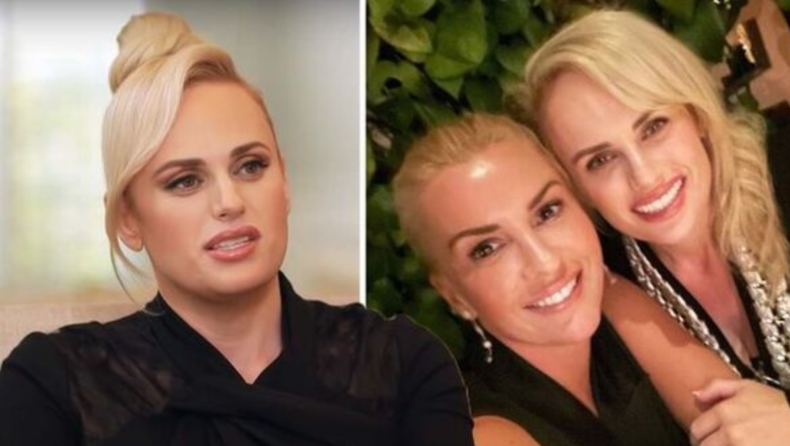
Rebel Wilson’s appearance caused a media uproar in Australia. Rebel Wilson, an Australian actress, and comedian disclosed on Instagram that she had discovered love with a woman.
People applauded her decision to come out on her own terms, they believed.
However, in a gossip column published the next day by the Sydney Morning Herald newspaper. He said he was aware of the story. He had allowed the actress 27 hours to comment “before publication.”
Andrew Hornery, a veteran gossip journalist, said that Wilson had “chosen to gazump” his article by breaking the news herself.
His own admission that he attempted to report Wilson’s very personal news provoked a worldwide outcry.
A win for LGBTIQ+ campaigners.
It was a tragic turn for LGBTIQ+ activists. A fantastic news story—the emergence of a famous role model. It had been tainted by a familiar, old menace.
Coming out is a deeply personal experience. Many people still struggle with accepting their sexuality. According to Nicky Bath, CEO of LGBTIQ+ Health Australia, one in every ten contacts to the QLife helpline is about difficulties with coming out.
“When we see someone publicly having the experience of being forcefully outed in 2022. I think it really throws a lot up in the air about where we are as a society, with respect to people’s privacy. Also about people’s own choices around what occurs in their lives,” she added.
Demands for media transparency
“I think the Australian media has to undertake some internal examination on how it conducts itself,” Ms Bath said in this situation. “Newsrooms must educate their audiences on the importance of their reporting.”
It is still risky for people in Australia to expose their non-normative sexuality or gender preferences. Josh Cavallo has described getting death threats and insults after coming out.
Ms Bath remarked that this recent instance occurs at a time when some sections of the Australian media continue to tolerate reckless reporting on gay and trans matters.
In a discussion sparked by the previous conservative administration, the 2017 general election saw a disproportionate spotlight on frequently false accusations about trans individuals in sports. According to campaigners, this had a negative influence on young trans people.
The newspaper issued three remarks on the outcry
In the instance of Rebel Wilson’s appearance, the newspaper has already released three statements in response to popular outrage.
Hornery apologized on Monday for his actions as a homosexual man. “I am very aware of how much prejudice affects. That is the last thing I would ever want to do to someone else. ”
However, this has prompted doubts about why he approached Wilson in the manner that he did, claiming to have “many sources” and “enough detail to print.”
According to critics, this demonstrated journalistic vanity and abuse of authority. Both of which are fostered in some newsroom environments.
On Sunday, the Herald editor’s defense note fueled this viewpoint. “To claim the Herald ‘outed’ Wilson is incorrect,” said Bevan Shields, who took over the position in January.
Wilson had been outed. The publication had pursued the story in accordance with standard journalistic norms. There was no firm plan to publish a piece, he added.
Privacy invasion in the Wild West
According to media ethics experts, it looks to be a “black and white” example of unethical journalism practice.
“This is a piece that should never have been published,” said Dr Sacha Molitorisz, who is a law and ethics expert at the University of Technology Sydney. Also a former senior writer at the Herald for over two decades.
He called Mr. Shield’s editorial defense “disingenuous.” Hornery’s communication to Wilson indicated a definite purpose to publish, according to him.
Shield’s defense, according to Tim Dwyer, who is a media ethics expert at the University of Sydney, is “poor” for such a “Wild West privacy breach.”
“He may refer to it as a procedure. But it’s really an ethical judgment that no one else can make… and in their case, they are in positions of considerable responsibility.”
Violation of ethical principles
Dr. Molitorisz pointed out that there are 14 sets of norms and standards that apply to journalists in Australia. But his own study reveals that few journalists are fully aware of these codes. When challenged, the majority indicated their work was guided by their personal morals.
Experts stated the key ethical principle plainly violated. In this case it was privacy. It states that individuals have the right to privacy unless newsrooms believe disclosure is in the public interest.
It’s possible that a politician’s romance with a subordinate worker will be made public. There was no comparable public outcry in this case.
However, most of the time, breaching this guideline has no legal consequences for Australian journalists.
The Australian Press Council, revealed to the BBC that it had received a number of complaints about the Wilson story. If the complaints are found to be legitimate, the publication just needs to print a correction and an apology.
In comparison to other countries, Australia’s privacy laws are frequently seen as lacking in protection for people.
“In the UK, the tabloid press is still highly invasive,” Dr. Molitorisz explained. “But it’s getting more careful since there have been quite a lot of successful privacy actions and claims for breach of confidence.”
The most powerful rules for compensating media victims are defamation torts. It doesn`t appear to apply in this case.
Wilson notably won a defamation action against Australian periodicals that called her a liar a few years ago.
Instead, Australia’s media is held to a high standard of integrity and audience confidence. It explains the anguish expressed by several Sydney Morning Herald reporters in the aftermath of the Wilson story.













